Related Research Articles

Run Devil Run is the eleventh solo studio album by Paul McCartney, released in 1999. It features mostly covers of both familiar and obscure 1950s rock and roll songs, along with three original McCartney compositions written in the same style, including the title track, making it the second McCartney covers album, after his Russian cover album. As his first project following first wife Linda's death in 1998, McCartney felt the need to get back to his roots and perform some of the music he loved as a teenager. On 14 December 1999, McCartney returned to the Cavern Club stage to play a set publicising the new album.
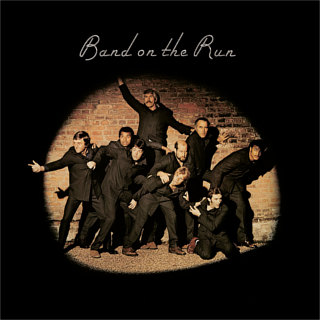
Band on the Run is the third studio album by the British–American rock band Paul McCartney and Wings, released in December 1973. It was McCartney's fifth album after leaving the Beatles in April 1970. Although sales were modest initially, its commercial performance was aided by two hit singles – "Jet" and "Band on the Run" – such that it became the top-selling studio album of 1974 in the United Kingdom and Australia, in addition to revitalising McCartney's critical standing. It remains McCartney's most successful album and the most celebrated of his post-Beatles works.
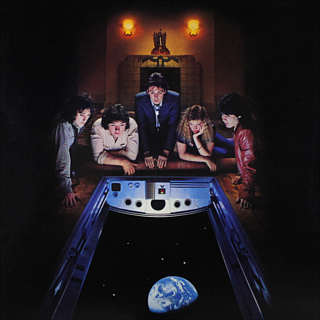
Back to the Egg is the seventh and final studio album by the British–American rock band Wings, released in June 1979 on Columbia Records in America, and on Parlophone in the UK. Co-produced by Chris Thomas, the album reflects band leader Paul McCartney's embracing of contemporary musical trends such as new wave and punk, and marked the arrival of new Wings members Laurence Juber and Steve Holley. Back to the Egg adopts a loose conceptual theme around the idea of a working band, and its creation coincided with a period of considerable activity for the group, which included making a return to touring and work on several television and film projects.

Ram is the only album credited to the husband-and-wife music duo Paul and Linda McCartney, released on 17 May 1971 by Apple Records. It was recorded in New York with guitarists David Spinozza and Hugh McCracken, and future Wings drummer Denny Seiwell. Three singles were issued from the album: "Uncle Albert/Admiral Halsey", "The Back Seat of My Car" and "Eat at Home." The recording sessions also yielded the non-album single "Another Day."

McCartney is the debut solo album by English musician Paul McCartney, released on 17 April 1970 by Apple Records. McCartney recorded it in secrecy, mostly using basic home-recording equipment at his house in St John's Wood. Mixing and some recording took place at professional London studios. In its loosely arranged performances, McCartney eschewed the polish of the Beatles' past records in favour of a lo-fi style. Apart from occasional contributions by his wife, Linda, McCartney performed the entire album alone by overdubbing on four-track tape.

Red Rose Speedway is the second studio album by the British–American rock band Wings, although credited to "Paul McCartney and Wings". It was released through Apple Records on 30 April 1973, preceded by its lead single, the ballad "My Love". By including McCartney's name in the artist credit, the single and album broke with the tradition of Wings' previous records. The change was made in the belief that the public's unfamiliarity with the band had been responsible for the weak commercial performance of the group's 1971 debut album Wild Life.

"You Won't See Me" is a song by the English rock band the Beatles from their 1965 album Rubber Soul. It was written by Paul McCartney and credited to Lennon–McCartney. As with songs such as "We Can Work It Out" and "I'm Looking Through You" from the same period, the lyrics address McCartney's troubled relationship with Jane Asher and her desire to pursue her career as a stage and film actress. The Beatles recorded the song during what author Mark Lewisohn describes as a "marathon" final recording session for Rubber Soul, to ensure the album's pre-Christmas release.

"Ob-La-Di, Ob-La-Da" is a song by the English rock band the Beatles from their 1968 double album The Beatles. It was written by Paul McCartney and credited to the Lennon–McCartney partnership. Following the album's release, the song was issued as a single in many countries, although not in the United Kingdom or the United States, and topped singles charts in Australia, Japan, New Zealand, Switzerland and West Germany. When belatedly issued as a single in the United States in 1976, it peaked at number 49 on the Billboard Hot 100.
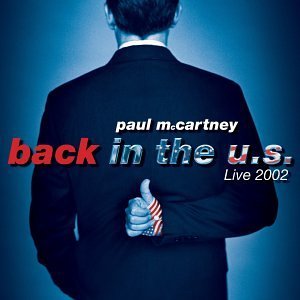
Back in the U.S. is a double live album by Paul McCartney from his spring 2002 Driving USA Tour in the US in support of his 2001 release Driving Rain. It was released with an accompanying DVD to commemorate his first set of concerts in almost ten years.
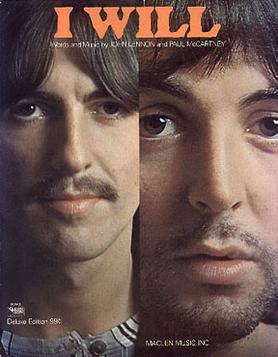
"I Will" is a song by the English rock band the Beatles, from their 1968 double album The Beatles. It was written by Paul McCartney and features him on lead vocal, guitar, and "vocal bass".
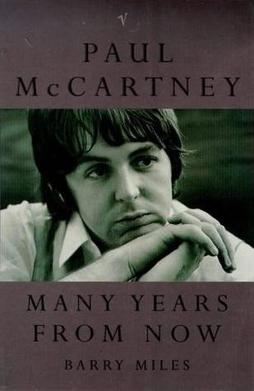
Paul McCartney: Many Years from Now is a 1997 biography of Paul McCartney by Barry Miles. It is the "official" biography of McCartney and was written "based on hundreds of hours of exclusive interviews undertaken over a period of five years", according to the back cover of the 1998 paperback edition. The title is a phrase from McCartney's song "When I'm Sixty-Four", from the Beatles' 1967 album Sgt. Pepper's Lonely Hearts Club Band. The book was first published in the United Kingdom in October 1997 by Secker & Warburg.

"Give Ireland Back to the Irish" is the debut single by the British–American rock band Wings that was released in February 1972. It was written by Paul McCartney and his wife Linda in response to the events of Bloody Sunday, on 30 January that year, when British troops in Northern Ireland shot dead thirteen civil rights protestors. Keen to voice their outrage at the killings, Wings recorded the track two days later at EMI Studios in London. It was the band's first song to include Northern Irish guitarist Henry McCullough.

"My Love" is a song by the British–American band Paul McCartney and Wings that was first released as the lead single from their 1973 album Red Rose Speedway. It was written by Paul McCartney as a love song to his wife and Wings bandmate Linda. The single marked the first time that McCartney's name appeared in the artist credit for a Wings record, after their previous releases had been credited to Wings alone. Released on 23 March 1973, the song topped the Billboard Hot 100 chart in the US for four weeks and peaked at number 9 on the UK Singles Chart. The single was viewed as Wings' first significant success in the US and helped Red Rose Speedway achieve commercial success.

"London Town" is a song by the British–American rock band Wings. The title and opening track of their 1978 album London Town, it was the third of three single releases from the album, reaching No. 39 in the US, No. 43 in Canada and No. 60 in the UK. It also reached No. 17 on the Billboard Easy Listening chart in the US.
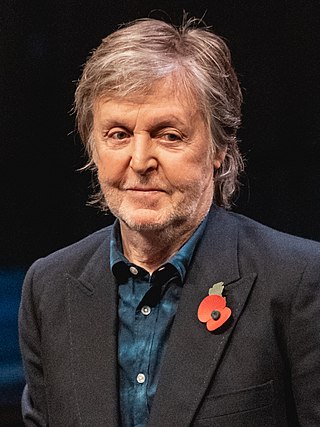
Sir James Paul McCartney is an English singer, songwriter and musician who gained worldwide fame with the Beatles, for whom he played bass guitar and shared primary songwriting and lead vocal duties with John Lennon. One of the most successful composers and performers of all time, McCartney is known for his melodic approach to bass-playing, versatile and wide tenor vocal range, and musical eclecticism, exploring genres ranging from pre–rock and roll pop to classical, ballads, and electronica. His songwriting partnership with Lennon remains the most successful in history.

"Mamunia" is a song written by Paul and Linda McCartney that first appeared on Wings' 1973 album Band on the Run. It was also released as the B-side of the "Jet" single in the US, but was replaced by "Let Me Roll It" when "Mamunia" was being considered as a possible future A-side.

"Tomorrow" is a song by the British–American band Wings from their debut album Wild Life, released in December 1971. It was written by band members Paul McCartney and Linda McCartney. In 1976, American singer David Cassidy had a hit with his cover version of the song.
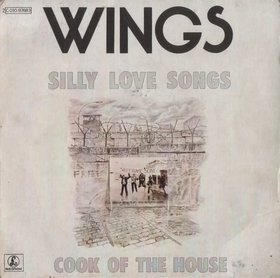
"Cook of the House" is a song written by Paul and Linda McCartney that was first released on Wings' 1976 album Wings at the Speed of Sound. It was also released as the B-side to the number 1 single "Silly Love Songs." The song was included on Linda McCartney's posthumous 1998 solo album Wide Prairie.

Miller's Rexall Drugs is a landmark hoodoo and homeopathic remedy shop in South Downtown Atlanta.
Run Devil Run oil is one of several charm oils used by Mexican curandero folk healers supposedly to ward off bad luck and remove jinxes. Other names include "Vete Diablo", "Corre Diablo", "Contra Enemigo", "Keep Away Evil" oil, and so on.
References
- Citations
- ↑ "Run Devil Run (song)". The Paul McCartney Project.
- ↑ Sounes 2010, p. 496 "He also returned to his roots, recording a new rock 'n' roll album, Run Devil Run, with guitarist mates Dave Gilmour and Mick Green. ... most of them obscure, with a couple of newly written tracks including the title song, 'Run Devil Run', inspired by a voodoo remedy Paul had picked up in Atlanta to ward off evildoers, thieves and liars. To promote the CD, and help mark the end of the millennium, Paul decided to perform these rockers at the Cavern."
- ↑ Benitez 2010, p. 154 "With the exceptions of the album's title track, Try Not to Cry, and What It Is, songs composed by McCartney, Run Devil Run consisted primarily of covers McCartney did with the Beatles before they became famous."
- ↑ Carlin 2009, p. 312 "Paul released the sessions a few months later under the title Run Devil Run, and you don't have to listen long to hear the voice of a man only just brushing past the hellhound that had been tailing him through the last few years."
- ↑ Jackson 2012, p. 240 "He got the album title Run Devil Run from a brand of bath salts used to ward off evil he saw being sold at an herbal medicine shop on 87 Broad Street in Atlanta."
- ↑ "Paul McCartney: The "Run Devil Run" interview". Abbeyrd.best.vwh.net. Retrieved 7 January 2014.
- Sources
- Benitez, Vincent P. (2010). The Words and Music of Paul McCartney: The Solo Years. Santa Barbara, Calif.: Praeger. ISBN 978-0-313-34969-0.
- Carlin, Peter Ames (2010). Paul McCartney: A Life. New York: Simon & Schuster. ISBN 9781416562238.
- Jackson, Andrew Grant (2012). Still the Greatest: The Essential Songs of the Beatles' Solo Careers (illustrated ed.). Lanham, Md.: Scarecrow Press. ISBN 9780810882232.
- Sounes, Howard (2010). Fab: An Intimate Life of Paul McCartney . [S.l.]: HarperCollins. ISBN 978-0-00-723706-7.